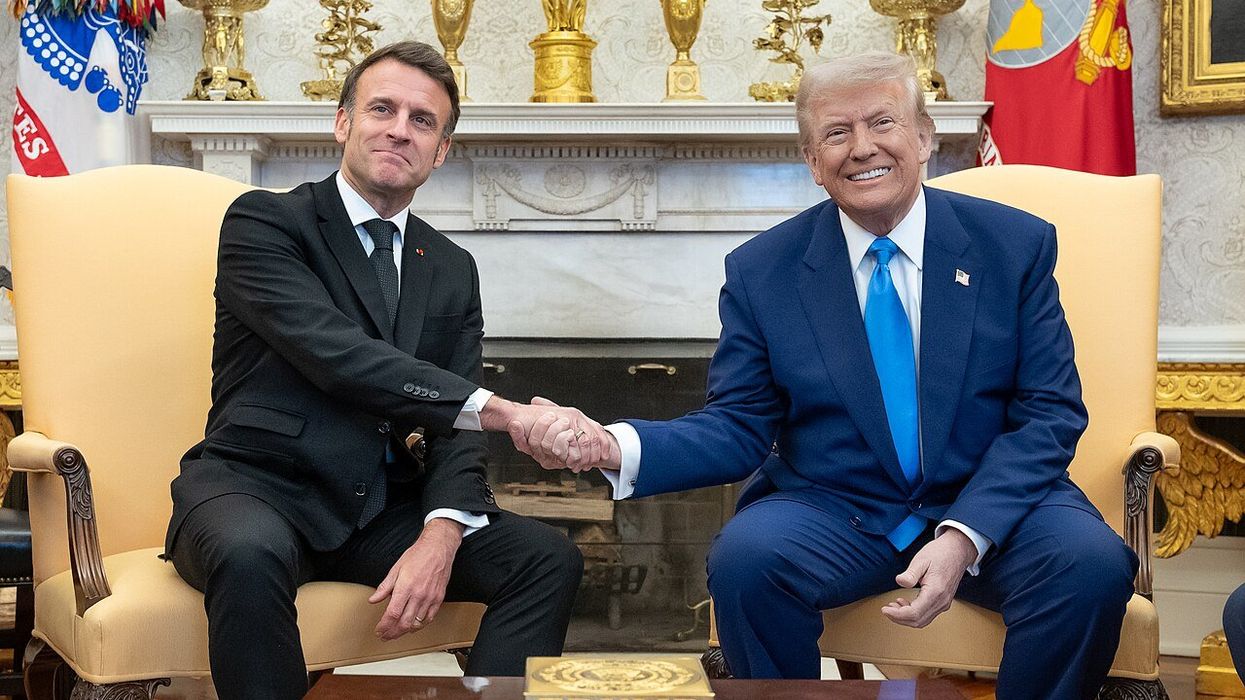In the past, Donald Trump was often described as an "isolationist" whose "America First" views were a dramatic departure from the hawkish conservatism of Presidents Ronald Reagan and George W. Bush and Sen. John McCain (R-Arizona) — all of whom were major proponents of "peace through strength." And Patrick Buchanan, a leading proponent of paleoconservative ideology and major foe of neoconservatives, applauded Trump for pushing U.S. foreign policy in a different direction.
But during his second presidency, Trump is, at times, sounding more imperialistic by calling for the United States to acquire Greenland and the Panama Canal and for Canada to become part of the United States — an idea that Canadian Prime Minister Justin Trudeau has vehemently opposed. Trudeau and many other Canadian officials, both left and right, are making it clear that while they consider the U.S. a valuable ally, the countries need to remain separate.
Author Robert D. Kaplan examines Trump's "American empire" ambitions in an article published on March 6, stressing that it is incompatible with the severe downsizing of the federal workforce that his administration is carrying out.
READ MORE: Announced layoffs have 'jumped to levels not seen since the last two recessions': report
"President Donald Trump may be an imperialist or a mercantilist, or even a dealmaker extraordinaire as he prefers to think of himself," Kaplan explains. "In any case, in his second term, he appears to be in the business of exerting American power abroad, from Greenland to Gaza. But no modern empire has ever successfully projected power globally without a competent and motivated bureaucracy."
The author adds, "The late Harvard political scientist Samuel P. Huntington wrote that the more complex a society becomes, the more it needs institutions to run it. And this is especially true of an empire, which the United States has been in functional terms since 1945."
Kaplan notes that the late Henry Kissinger, who served as secretary of state under President Richard Nixon, once told him how reliant he was on his State Department colleagues and the U.S. Foreign Service — who Kaplan describes as "the very people whom the Trump Administration is moving not only to fire, but to humiliate."
"The Trump Administration's war on its own imagined 'deep state' is essentially a war against the very institutions needed to organize society at home and especially, defend it from its enemies abroad," Kaplan writes. "American power abroad is expressed not only through presidential decisions, but through the power of institutions, notably the State Department and the Defense Department…. While the Trump Administration and conservative media deride those who staff these institutions as members of the 'deep state,' these are people I have personally known and reported on for a lifetime."
READ MORE: 'Massive personnel cuts': MAGA threatens to topple Social Security
Kaplan continues, "They constitute the national security bureaucracy, and bureaucracy in this case is a word I have come to respect through my life experience writing about the world. Remember that even mass democracies require a bureaucratic elite to manage a world, especially one of imperial dimensions.
READ MORE: Trump tariffs a 'direct attack' on Nevada as imported produce, seafood and liquor targeted
Robert D. Kaplan's full article for Politico is available at this link.


